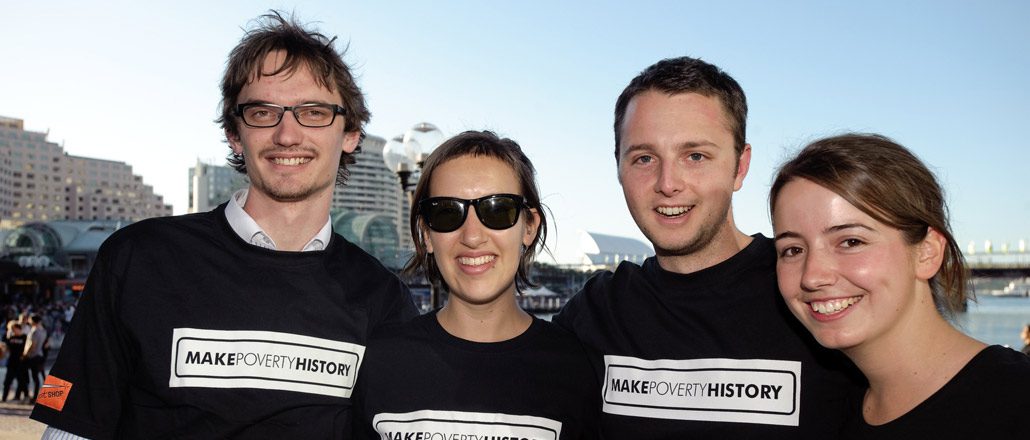
By International Development Campaign Lead, Grant Hill.
For the last 15 years I’ve worked in a number of roles, in numerous teams, across several development agencies, campaigning for an end to poverty. And over this time the development sector has focussed on reducing poverty in eight key areas known as the Millennium Development Goals (MDGs). (These eight global poverty-busting goals were adopted by 190 nations — including Australia — in the year 2000, hence “Millennium”.)
Many of you will have worked on this project too either as supporters of Oxfam or the Make Poverty History campaign. Well this year marks the transition from the MDGs to the SDGs (the Sustainable Development Goals). But before we do, I think it’s important for us to reflect on what’s been achieved. Particularly given events of recent years including: Labor’s pause, and then the Coalition’s repeated cuts, to the Australian aid budget; the controversial shifts in how Australia’s aid budget is being spent by the Federal Government; and the regular media questioning of the benefits of aid. (All of which could be forgiven for leaving even the most resilient of campaigners feeling rocked at times.)
Because yes, despite the nay saying, aid does in fact work. Over the period of the MDGs, global poverty has halved!
Aid works
Check out the 2015 Millennium Development Goals Report for details on the enormous progress that’s been made. Progress that includes:
- the proportion of undernourished people in developing regions falling by almost half since 1990;
- more children than ever reaching primary school;
- child mortality dropping dramatically;
- access to safe drinking water being greatly expanded; and
- investments in fighting malaria, HIV/AIDS and tuberculosis saving millions more lives.
“I was inspired”
I remember visiting villages in Bangladesh: sitting and talking with groups of women who had been empowered through literacy programs and learning new farming skills. Such programs opened new doors for many of these women. Some were able to grow more crops, and then sell their excess produce, giving them the resources to improve the health and schooling of their children. Some of these women went on to become local councillors. I was inspired by these women’s tenacity and their commitment to improving the lives of those around them: both family and those in the broader community.
Programs like those I witnessed in Bangladesh were later expanded. This was in part the result of the policy changes and improved funding arrangements that flowed from implementing the world’s MDG commitments.
A number of Oxfam’s strategic priorities have also been well aligned with the MDGs including gender equality. And as a result, where we had only 74 girls enrolled in primary school for every 100 boys in 1990, today the world can boast it has 103 girls enrolled for every 100 boys. Women too have improved their parliamentary representation over the past 20 years in nearly 90% of the 174 countries with recorded data: the average proportion of women in parliament nearly doubling over this time.
So as I sit here, taking stock, it is heartening to see these improvements, but it’s also vital that I remember them.
The MDGs have shown that goal setting on a global scale, when subsequently integrated into national and regional plans, can empower women and girls, improve health and well-being, and help lift millions of people out of poverty.
So we know aid works, what now?
An opportunity to shape policy and funding to 2030
World leaders are meeting at the end of September to agree on a second round of global goals. These will be known as the Sustainable Development Goals and will shape policy and funding arrangements until 2030. This meeting is an encouraging sign for long-time campaigners like me as we see it as a real opportunity for world leaders to build on the successes and lessons of the MDGs. Importantly, it will allow them to better target and involve the world’s most marginalised communities, but also, enable us to integrate SDG programs to effectively tackle the rising threat of climate change.
I hope that after taking stock (and celebrating) that you will join me and Oxfam to help shape, and fully implement, the new Sustainable Development Goals. Take action: demand our PM be the leader we need.